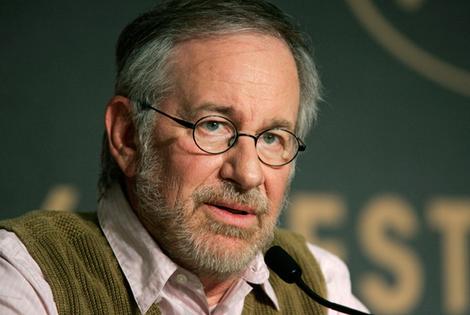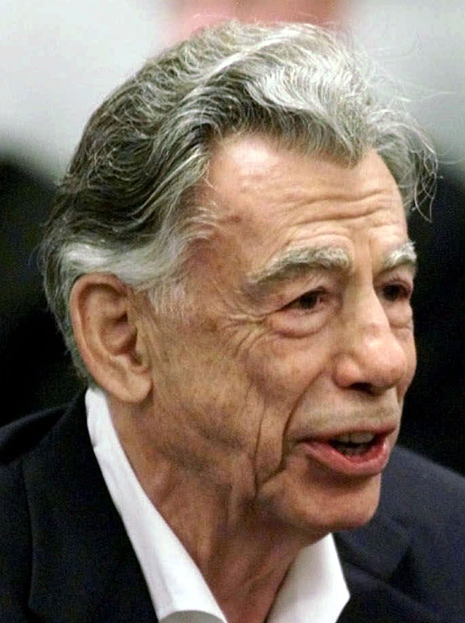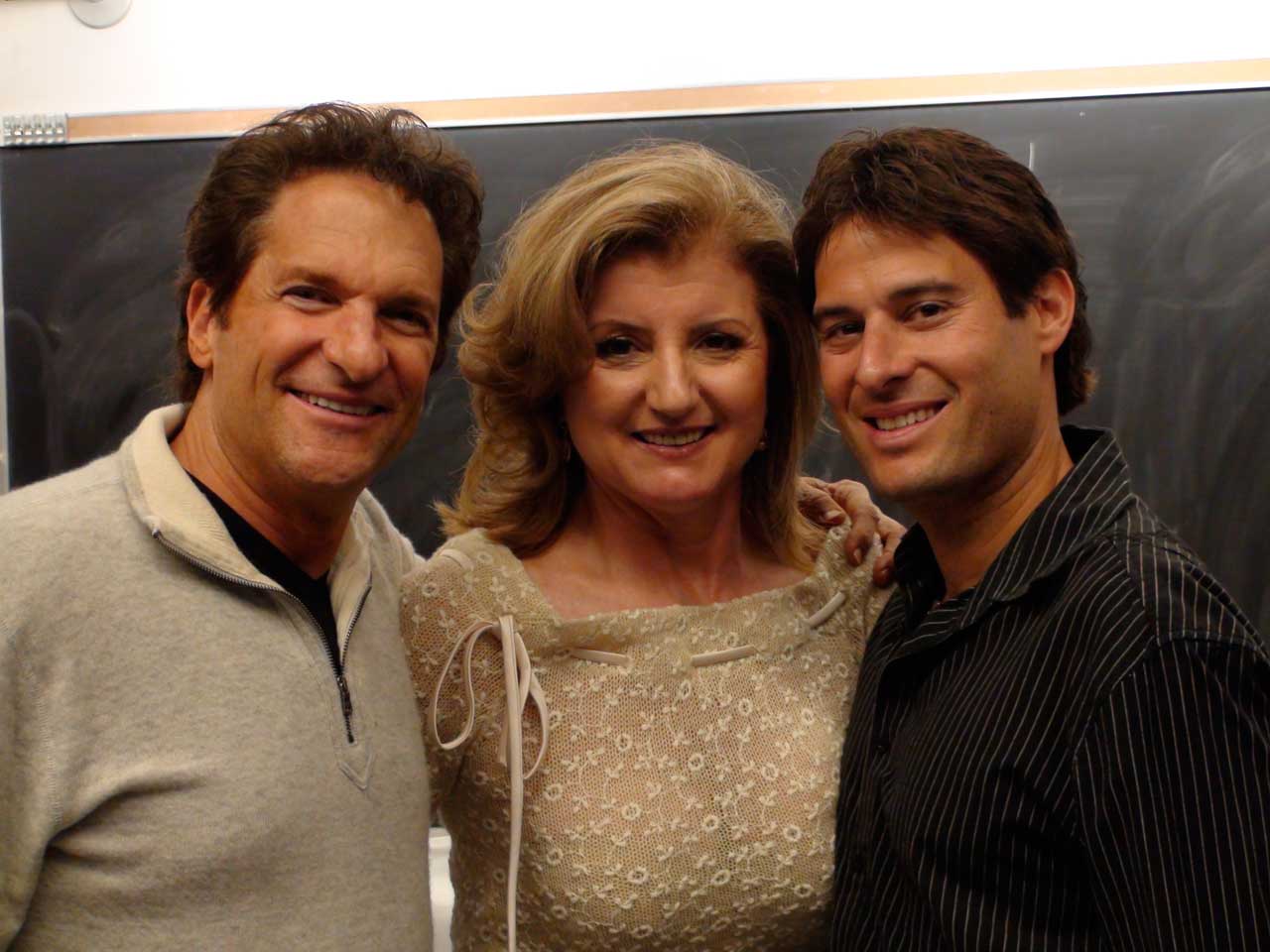What makes a story endure for more than forty years? It was Steven Spielberg who triggered that question for Peter Guber when he interviewed him in 2008 for his television show, Shootout.
“I don’t know if you know this,” Steven Spielberg told Guber as they reminisced about some of the movies they’d both been involved with – Close Encounters of the Third Kind, Innerspace, Hook and The Color Purple, “but I used to go to your office at Columbia when I was just starting. You had an enormous chart on your wall with what every director in the world was planning that listed their pictures in development and planned for production. It was your ‘board of directors’!”
Why had that information display made such a strong impression on him? And then it hit Guber that lots of other friends and colleagues also had referred to that gigantic corkboard chart over the years.

Peter Guber & Steven Spielberg
When Guber first arrived in Hollywood, he wanted a fast track ascension up the career ladder. But, Guber needed to find a way to distinguish himself from the other young executives. Guber found it by solving a problem. One day he was horrified to discover that the studio chiefs were choosing a director for a new movie based on a serendipitous lunch encounter where they consumed a tuna fish sandwich together and learned that a particular director was available. Was this any criteria to choose a filmmaker?!
In these pre-internet days, Guber had a sense that information was currency, so he organized the data about Hollywood directors on a color coded corkboard in his office so everyone could add to it and take from it. Guber listened in the executive hallways to identify the types of information that would be most useful, making categories on the board for each type of data.
The story spread, shining the light on Guber as an innovator, which distinguished him from his competition. Having others tell Guber’s professional story propelled his career.
MORE ABOUT TELL TO WIN
 To validate the power of telling purposeful stories, Guber includes in this book a remarkably diverse number of ‘voices’ – master tellers with whom he’s shared experiences. They include YouTube founder Chad Hurley, NBA champion Pat Riley, clothing designer Norma Kamali, “Mission to Mars” scientist Gentry Lee, Under Armour CEO Kevin Plank, former South African president Nelson Mandela, magician David Copperfield, film director Steven Spielberg, novelist Nora Roberts, rock legend Gene Simmons, and physician and author Deepak Chopra.
To validate the power of telling purposeful stories, Guber includes in this book a remarkably diverse number of ‘voices’ – master tellers with whom he’s shared experiences. They include YouTube founder Chad Hurley, NBA champion Pat Riley, clothing designer Norma Kamali, “Mission to Mars” scientist Gentry Lee, Under Armour CEO Kevin Plank, former South African president Nelson Mandela, magician David Copperfield, film director Steven Spielberg, novelist Nora Roberts, rock legend Gene Simmons, and physician and author Deepak Chopra.
After listening to this extraordinary mix of voices, you’ll know how to craft, deliver – and own – a story that is truly compelling, one capable of turning others into viral advocates for your goal.


